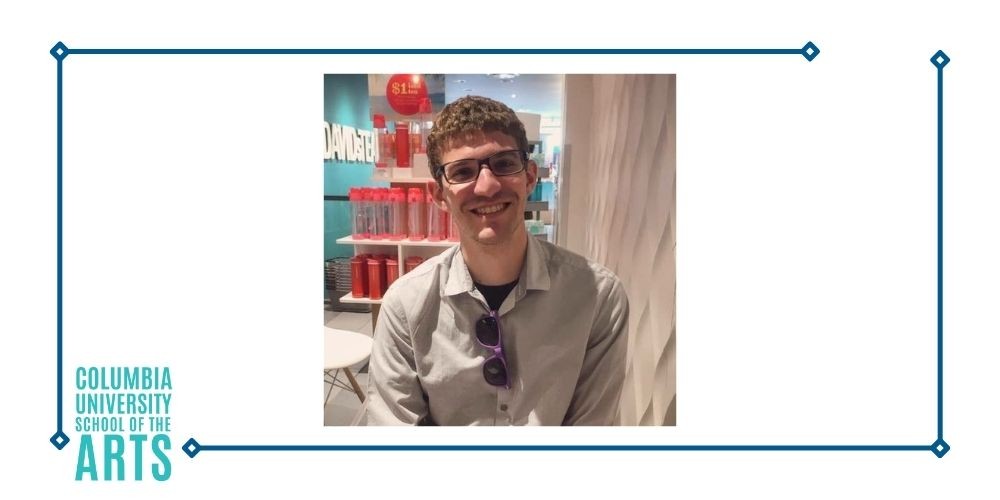Student Spotlight: Zach Marlin '19
Why did you choose Dramaturgy?
I grew up loving theatre and my background is largely in performance. As much as I enjoyed acting, I was never sure that I wanted to do that as a career and live an audition-to-audition lifestyle, and it made me wonder where my place in the theater world was. In undergrad, I had a professor who is a dramaturg, and after talking with him extensively and researching how far-reaching dramaturgy can be, it really appealed to me. Dramaturgy allows me to look at theatre through so many different, complex lenses. I never feel pigeon-holed into just doing one thing or another, as dramaturgy involves having knowledge and experience in every aspect of the process. The best theatre-makers are all good dramaturgs, even if they don't necessarily carry that specific title along with them. Theatrical collaboration is also dramaturgical in how the different disciplines overlap and come together to create one cohesive work of art. Thus, dramaturgy feels like a way for me to explore and understand many of the different facets of the theater without making me feel trapped in a certain way of thinking. In fact, it's the opposite—my opinions, taste, and thoughts are constantly evolving based on the work I'm engaging with, and to continue learning feels essential to being an artist. To me, dramaturgy provides that flexibility by allowing me to engage with work with a delicate balance of critical and practical thinking.
What challenges do you face as a Dramaturg?
One of the biggest challenges is being able to adapt and change depending on what is needed for any given project. A dramaturg has to be a chameleon in a lot of ways, able to blend into what a specific production or artist is trying to accomplish and then to help achieve that in the best way possible. No two projects are ever the exact same, and thus, no "act of dramaturgy" (as our professor Morgan Jenness would say) is ever done in the same way. Having the ability to shift my perspective and both recognize and act upon the needs of a certain project is difficult to accomplish and definitely remains a challenge. Beyond that, I want to be able to promote and produce works that I think are new and exciting, which can be difficult in our current theatre world where breaking in is one of the more difficult tasks for artists. It's easy to revert back to known properties rather than moving the form forward, but I would love to be part of the conversations in pushing theaters to take more risks.
What kind of theatre excites you?
I've always been fascinated with theater that changes my thinking around how we tell stories on stage, which can happen in any number of different ways. Sometimes it's the reinvention of a classic that helps me to see it in a new light—such as Ivo van Hove's A View from the Bridge, Sam Gold's Glass Menagerie, and the most recent revival of Angels in America from Marianne Elliott. In other cases, its the telling of fresh and distinct stories of which I was previously unaware or unfamiliar—plays like The Wolves by Sarah deLappe or The Band's Visit. I'm also a big fan of musical theatre, and so I'm always looking to find musicals which either advance/subvert the form (examples that immediately come to mind include In the Heights and Fun Home) or those that show musical theatre at its best and brightest, much like the current Hello, Dolly! revival. I personally believe the best theater is that which tells its story in the most cohesive and creative way, and there are so many ways to accomplish that, which is part of what makes theater so thrilling to experience when its done well.
What would you like to be doing in ten years from now?
This answer seems to change every day, but my most consistent answer is that I'd either like to be working at a theatre company, whether in New York or regionally, as either a literary manager or associate artistic director or as a professor of dramaturgy at a university. For the former, it's an exciting prospect to help shape the work being done at one of these companies and champion new and diverse works of theatre from a wide-range of artists and theatre-makers. For the latter, I've always found that the most engaging conversations I've had discussing theater have been in or around classrooms, and to have those conversations with devoted theatre students seems like a great way to stay invested in the current theater world while learning from the next generation of artists.
